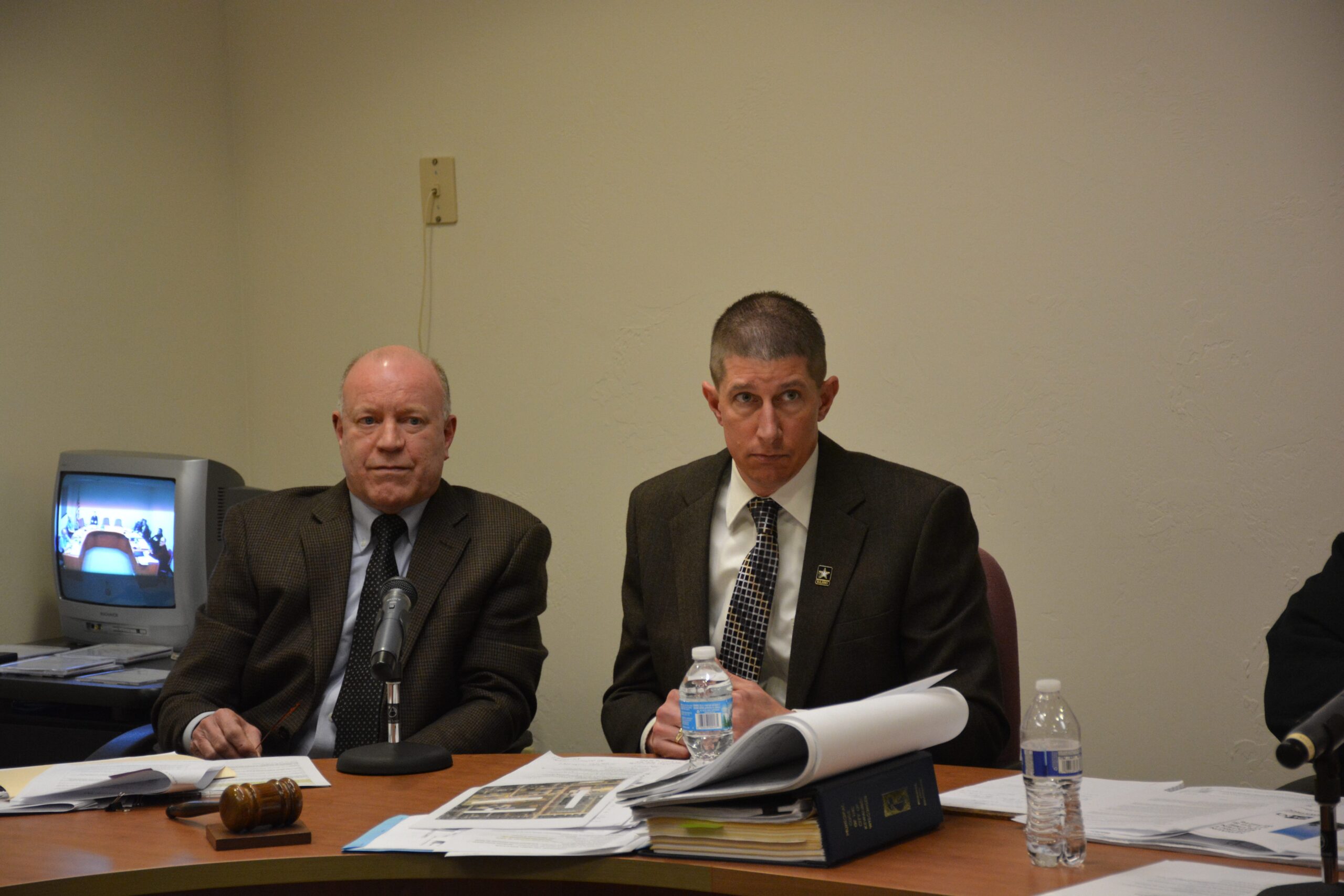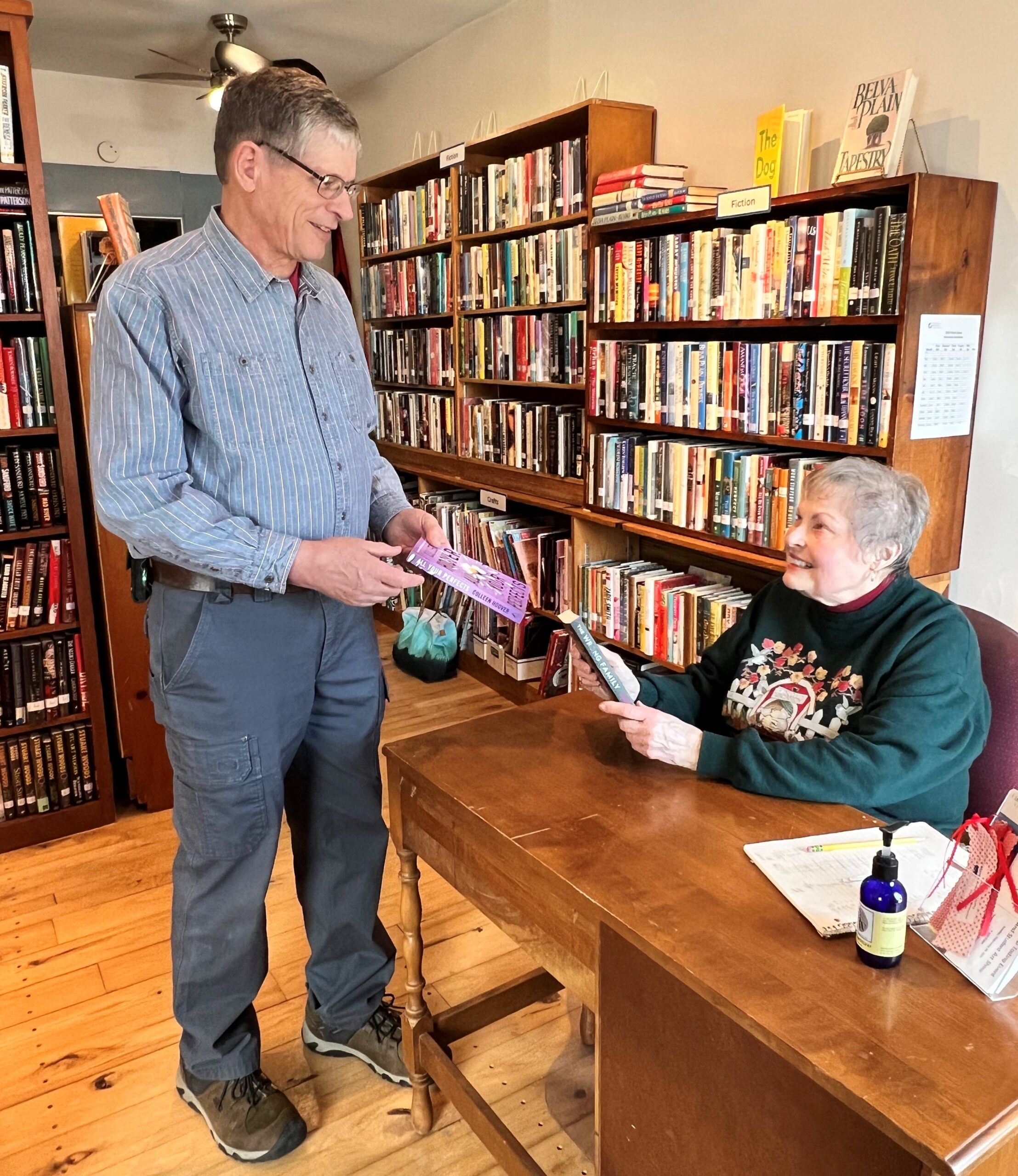City, school district attorneys argue over ag building permit

After listening to attorneys argue over whether the Kewaunee Plan Commission has the legal right to grant the Kewaunee School District a conditional use permit for an agricultural education building that would harbor livestock, the commission voted unanimously Thursday to move the permit process forward to a public hearing.
The school district has petitioned the city to grant the permit as part of the plans they submitted to the city for a new agricultural education building. The building would be constructed on land the school district owns across the street from its Third Street campus.
The issue is whether the Plan Commission has the legal right to grant a conditional use permit for the agricultural building that would violate a city ordinance that prevents keeping livestock in the city except on properly zoned premises.
Speaking in front of more than 60 parents, teachers and school board representatives, attorneys for the school district, plan commission, and city council all had differing views on the legality of the permit request, but attorneys from all sides said they wanted to work with the school district to move the project forward.
Randy Charles, agricultural teacher for Kewaunee schools, said that plans are to bring one to two farm animals at a time to the new building for agricultural classes that serve approximately 80 high school students and 70 middle school students.
There would be livestock at the building approximately 15 days per year and would include cows, horses, pigs and goats, Charles said. The school has outlined plans for feeding the livestock, transporting them to and from the building and handling animal waste.
In response to a question from Plan Commissioner John Mastalir on why the students could not go to an area farm for the livestock education classes, Charles said that created too many liability issues for the farmers and safety issues for the students.
Karen Treml, school district superintendent, said that the school’s agricultural program was growing and that they were now meeting with the Algoma School District to partner by bringing Algoma students to agricultural classes in Kewaunee. In exchange, Kewaunee students could attend fabrication and other manufacturing classes at Algoma schools.
Mary Gerbig, the school district’s attorney, argued that “educational use trumps the ordinance.”
She said that under the Americans With Disabilities Act, the school had to provide agricultural education classes for students with disabilities and these classes could not be properly offered at a farm. Gerbig said the design of the agricultural building includes gates, glass enclosures and other features for students with disabilities.

As plan commissioners expressed their frustration at the process and said they wanted to work with school representatives, the Plan Commission’s attorney, Ron Messmann, said that the commission’s choices were limited under the law.
He said they could vote to reject the permit request, which would send it to the city’s zoning board of appeals, where it would probably end up in court. The other choice was to move it forward to a public hearing. Based on the public comments at the hearing, the commission could then vote to deny or grant the permit, or grant the permit with conditions, Messmann said.
He said, however, if the Plan Commission chose to grant the permit after the public hearing, the city could then argue that it violates a city ordinance and challenge it in court.
“The Plan Commission is not a legislative body,” Messmann said. “It does not it not have the authority to change the ordinance.”
City Attorney William Wolske agreed. He said the Plan Commission has the authority to issue the permit, but only if it ignores the ordinance.
“A judge would decide if there is legal authority,” he said.
But Gerbig said that under the educational use doctrine, the law makes an exception.
“You can point to other school districts and say you have the authority to act,” she told the commission. “You can’t just look at one ordinance, you have to look at all the ordinances that govern schools.”
Gerbig said that the state has approved plans for the agricultural building and other improvements to Kewaunee schools, which are funded by a $16.2 million referendum voters approved last year.
Treml said that if the conditional use permit was granted, she understood that then the school district would be properly zoned.
“We are not doing a good job for our kids,’ said Treml. “Other schools have this.”
She noted that both Denmark and Mishicot had agricultural facilities with livestock.
Treml said that she hoped the city would grant the school district an educational exception, noting how important agriculture education was to Kewaunee’s farm community.
Jeff Vollenweider, chairman of the Plan Commission, said that the whole process had been very frustrating and that the only way he believed it could be resolved was to ask the city council to change the ordinance.

“Yes, we have the authority to issue the conditional use permit, but will it be legal?” he said.
Wolske said that the city might be obligated to challenge the permit.
He said after the meeting that the city might have to enforce the ordinance. The city could be challenged by a neighbor near the school district campus who might file a writ of mandamus, which is an order from a court to a government official ordering the official to properly fulfill their official duties, he said.
“”We have asked the city to sit down and talk about this repeatedly and they have refused,” Treml said after the meeting. “We hope we can get together now and sit down and figure this out … we are trying to do wonderful things for kids.”
The date, time and location of the public hearing will be announced next week.
This article originally appeared on Green Bay Press Gazette: City, school district attorneys argue over ag building permit







